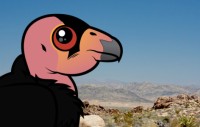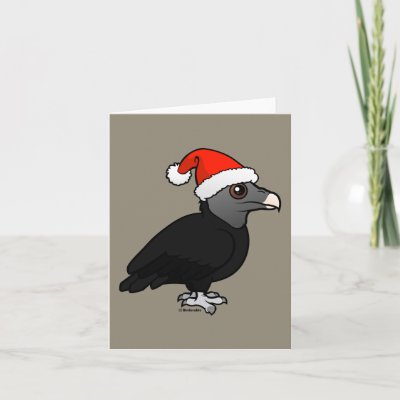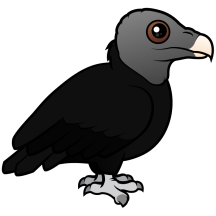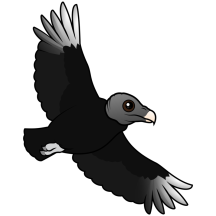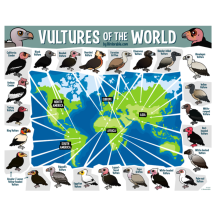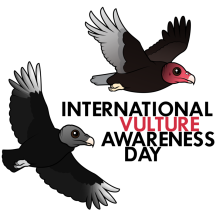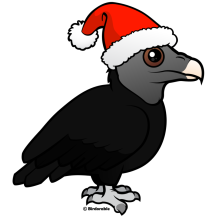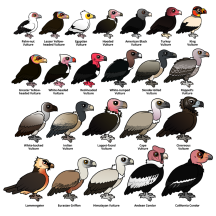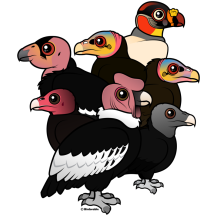Also known as: Carrion Crow, Black Buzzard, Jim Crow
The American Black Vulture lives from the southeastern United States to South America. It has a restricted distribution than the Turkey Vulture, which breeds all the way into Canada and south to Tierra del Fuego. Despite the similar name and appearance, this species is unrelated to the Eurasian Black Vulture. Black Vultures inhabit relatively open areas which provide scattered forests or shrublands.
The American Black Vulture is a scavenger and feeds on carrion. In areas populated by humans, it also feeds at garbage dumps. It soars high while searching for food, holding its wings horizontally when gliding.
Added to Birdorable
Hatched December 10, 2007
Measurements
Length:
1.8 to 2.4 feet
(55.9 to 73.7 cm)
Wingspan:
4.3 to 5.5 feet
(1.3 to 1.7 meters)
Weight:
3.5 to 6.1 pounds
(1.6 to 2.8 kilos)
Brazilian (Português brasileiro)
Urubu-de-cabeça-preta
Zopilote Común / Gallinazo Negro


















